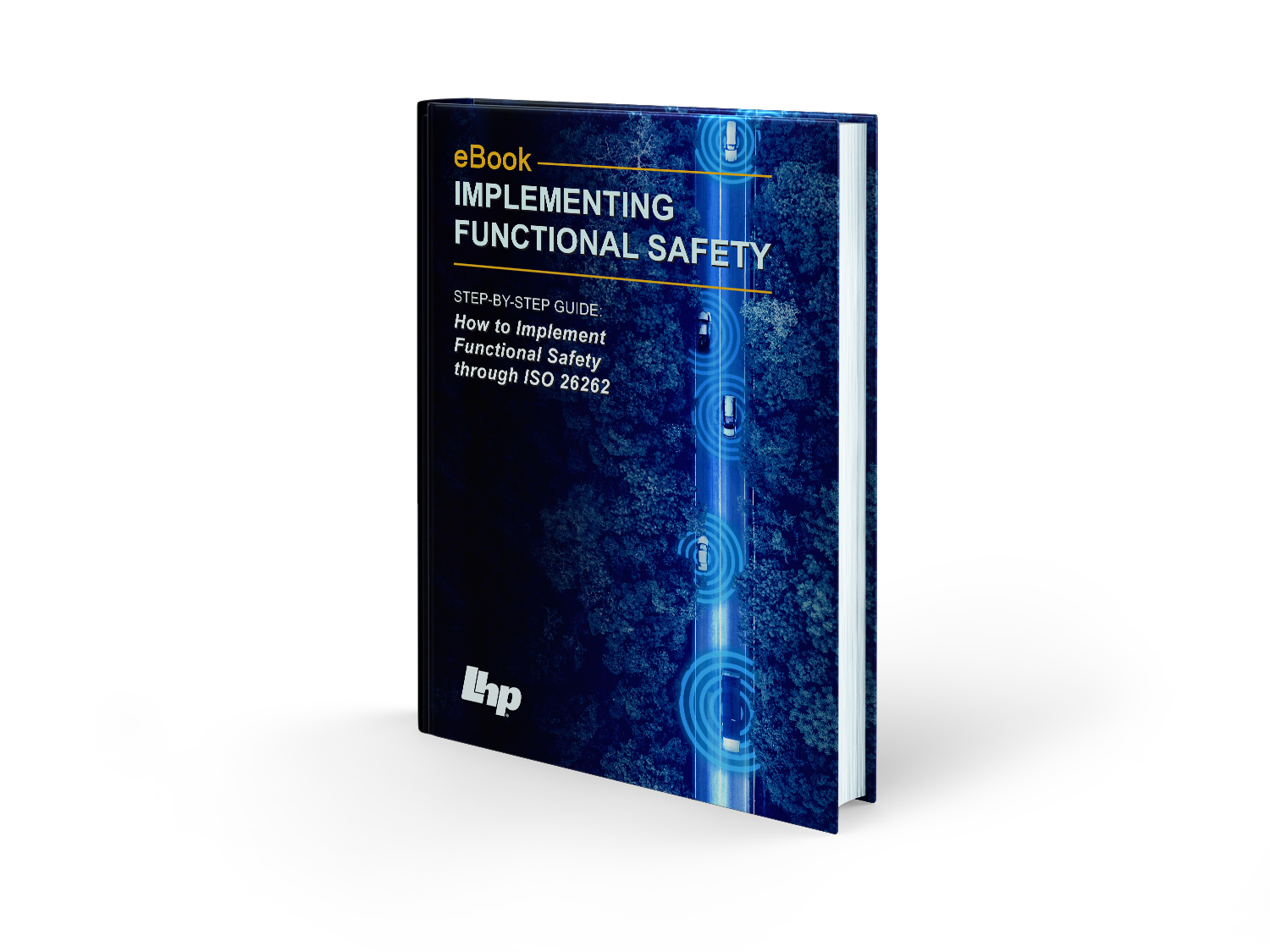End-to-End Automotive Testing Services
Overview: Automotive Test Services
LHP provides comprehensive automotive test services to ensure advanced automotive systems' safety, security, and functionality. Their approach starts with systems engineering and requirements analysis, ensuring products meet both industry standards and client expectations. Custom test scripts and flexible test execution options—onsite or remote—allow for tailored testing solutions that suit each project’s unique needs.
To accelerate development, LHP offers rapid prototyping, enabling early design iteration and testing. Functional safety verification and validation (V&V) aligns systems with ISO 26262 standards, ensuring reliability and real-world safety. Security is a top priority, with LHP’s security testing services including penetration testing to identify vulnerabilities and fuzz testing to uncover security flaws under unexpected inputs.
With test automation capabilities, LHP enables efficient, repeatable testing cycles, improving accuracy and consistency. Their system level integration and high voltage integration expertise addresses the complexities of electric and automated vehicles, promoting seamless interoperability and safety compliance. Additionally, LHP assists with test environment set-up, creating custom test labs that facilitate efficient and controlled product development.
LHP’s end-to-end test services provide the expertise needed to deliver secure, high-performing automotive systems that meet stringent industry standards.
LHP Systems Engineering
LHP's systems engineering services focus on developing cohesive, integrated automotive systems that meet the industry’s highest standards for safety, functionality, and reliability. By employing a holistic approach, LHP ensures that each component—hardware, software, and mechanical—works in unison, supporting seamless interoperability across complex automotive environments. The team leverages in-depth expertise to manage the complete lifecycle of each system, from initial requirements and design to verification and deployment. LHP’s systems engineering framework allows for precise integration, meeting customer requirements while enabling scalability and adaptability for future advancements in automotive technology. This thorough approach ultimately reduces risks, improves performance, and aligns with evolving regulatory requirements.
-
Requirements Analysis
LHP’s requirements analysis ensures all systems align with customer needs and industry standards. This process involves defining, documenting, and managing requirements to minimize development risks and guide the project effectively from concept to completion. -
Test Scripts
Tailored to each project, LHP’s test scripts are designed to capture comprehensive testing scenarios. They support automated and manual testing, ensuring accuracy and consistency across multiple test cycles and use cases. -
Onsite or Remote Test Execution
Offering flexible test execution, LHP conducts tests both onsite and remotely. This flexibility allows clients to choose the best approach based on their resources and logistics, delivering rigorous, high-quality testing regardless of location.
Rapid Prototyping
LHP's rapid prototyping services accelerate the development cycle by allowing early-stage testing and iterative design improvements. Through rapid prototyping, LHP enables clients to quickly evaluate design concepts, functionality, and performance, identifying potential issues before full-scale production. This approach reduces both time and costs associated with traditional development by providing fast feedback and enabling adjustments based on real-world testing data. Whether creating physical prototypes or virtual models, LHP’s rapid prototyping supports agile development processes, helping clients bring high-quality, innovative automotive solutions to market more efficiently.
Functional Safety Verification and Validation (V&V)
LHP's Functional Safety Verification and Validation (V&V) services are designed to ensure automotive systems meet rigorous safety standards, including ISO 26262. LHP’s V&V services address every stage of development, from initial safety requirements to final validation, to ensure systems are both reliable and safe for real-world applications. Through systematic testing and validation, LHP evaluates each component’s functionality under various conditions, identifying and mitigating potential risks that could compromise safety. This comprehensive approach ensures that all safety-critical functions operate as intended, reducing hazards and aligning with industry regulations. By combining deep expertise in functional safety with cutting-edge testing methodologies, LHP’s V&V services empower clients to develop safer, more robust systems that comply with the highest automotive safety standards.
Security Testing
LHP's security testing services provide comprehensive protection for modern automotive systems, identifying and mitigating vulnerabilities before they become threats. With the rise of connected and autonomous vehicles, LHP’s security testing covers a wide range of methods to ensure system resilience against cyber attacks. Using advanced techniques, LHP simulates potential attack scenarios, evaluating system responses and reinforcing defenses against unauthorized access, data breaches, and other cyber threats. By implementing robust security testing throughout the development cycle, LHP helps clients ensure their automotive solutions meet industry standards for cybersecurity, enhancing both safety and user trust.
-
Penetration Testing
LHP’s penetration testing services identify potential vulnerabilities by simulating real-world attacks. This process helps uncover security weaknesses in a controlled environment, allowing LHP to strengthen defenses and ensure systems are resilient against external threats. -
Fuzz Testing
LHP’s fuzz testing involves inputting random or unexpected data into a system to detect weaknesses in its response. This process helps uncover vulnerabilities that could be exploited by attackers, ensuring systems are robust and secure against varied, unpredictable inputs. -
Overview of PCAutomotive
 PCAutomotive focuses on enhancing automotive cybersecurity with expertise in secure software development, vulnerability management, and threat intelligence. LHP and PCAutomotive offer specialized solutions that safeguard automotive systems against cyber threats and meet evolving industry standards.
PCAutomotive focuses on enhancing automotive cybersecurity with expertise in secure software development, vulnerability management, and threat intelligence. LHP and PCAutomotive offer specialized solutions that safeguard automotive systems against cyber threats and meet evolving industry standards. -
Vehicle Security Operations Centers (VSOC) for Threat Monitoring
LHP’s VSOC offers real-time monitoring to detect and respond to cybersecurity threats within automotive systems. By continuously tracking potential incidents, the VSOC strengthens vehicle safety and provides proactive threat management for in-field vehicles. -
Cyber Lab
The Cyber Lab is LHP’s dedicated environment for testing and validating cybersecurity measures in a secure, controlled setting. Here, LHP’s engineers simulate attack scenarios, evaluate defenses, and ensure automotive systems are prepared for the latest cybersecurity challenges.
Test Automation
LHP's test automation services streamline the testing process, providing efficient, repeatable testing cycles that improve accuracy and reduce time-to-market. By automating repetitive test scenarios, LHP ensures that automotive systems undergo thorough and consistent evaluation, minimizing human error and enhancing test coverage. Test automation supports both functional and security testing, allowing for rapid feedback and continuous integration throughout the development lifecycle. This approach not only speeds up validation but also allows for more complex testing scenarios, ensuring that each system meets high standards for performance, safety, and reliability. With LHP’s test automation, clients gain a faster, more reliable path to achieving compliance and delivering robust automotive solutions.
System-Level Integration
LHP's system-level integration services ensure that all components within an automotive system work together seamlessly, enhancing overall functionality, safety, and reliability. This process involves combining hardware, software, and mechanical elements into a unified system that meets industry standards and performs as intended across varied conditions. By thoroughly testing and validating each interaction between components, LHP identifies and resolves integration challenges early, minimizing risks and improving system performance. System-level integration also includes verifying interoperability across different modules, such as powertrain, control systems, and user interfaces, which is crucial in complex environments like electric and autonomous vehicles. LHP’s expertise in system-level integration enables clients to bring cohesive, high-quality products to market that operate reliably and efficiently in real-world scenarios.
High Voltage Integration
LHP's high voltage integration services support the specialized needs of electric and hybrid vehicle development. This service focuses on safely integrating high voltage systems, such as batteries, inverters, and electric motors, into automotive architectures, ensuring compliance with strict industry safety and performance standards. LHP’s expertise covers the entire high voltage ecosystem, including component interoperability, thermal management, and electrical insulation, which are essential to the safe and efficient operation of high voltage systems. Through rigorous testing and validation, LHP ensures that these systems can handle high power loads without compromising safety. LHP’s high voltage integration services help clients create reliable, efficient electric vehicle systems that are ready for production and aligned with evolving regulatory requirements.
6 min read
Simulation and HIL Testing for Rapid Development
Nov 20, 2023 by Adam Saenz
6 min read
Increasing Efficiency in Hybrid Electric Vehicles by Reducing Switching Losses in Inverters
Jul 19, 2023 by Steve Neemeh







